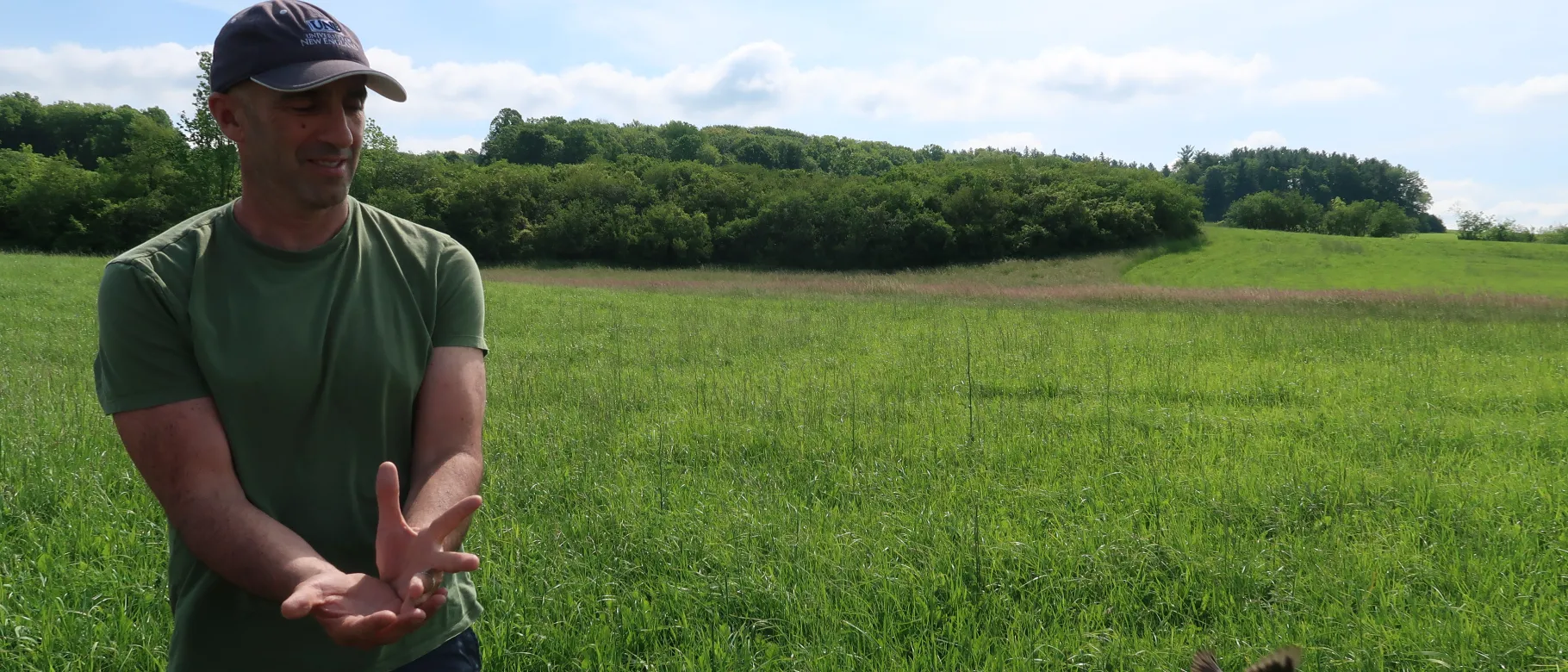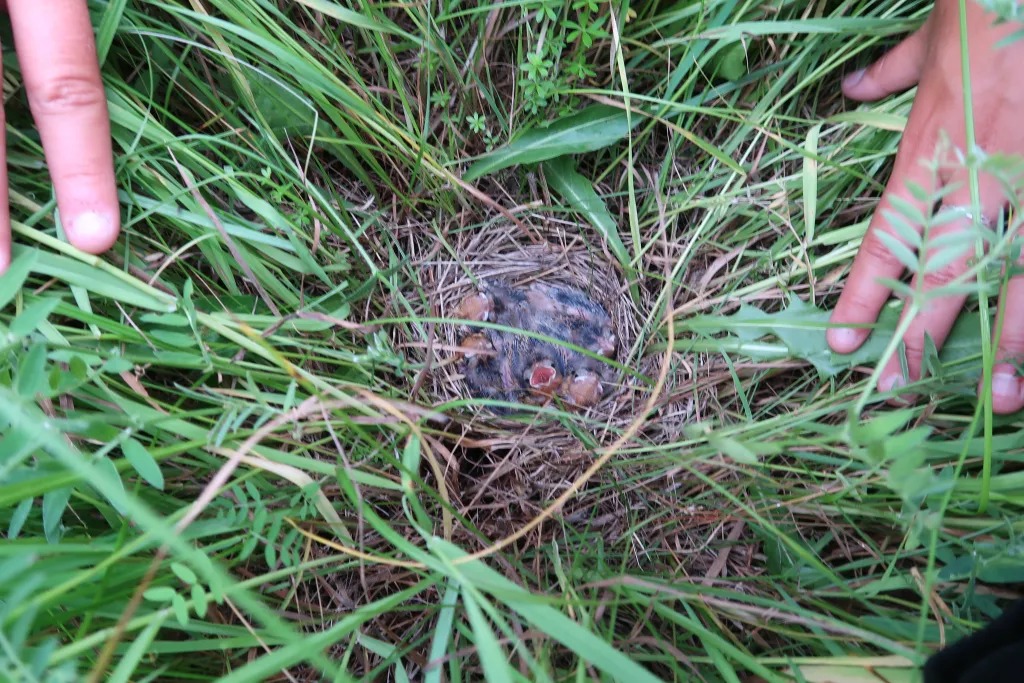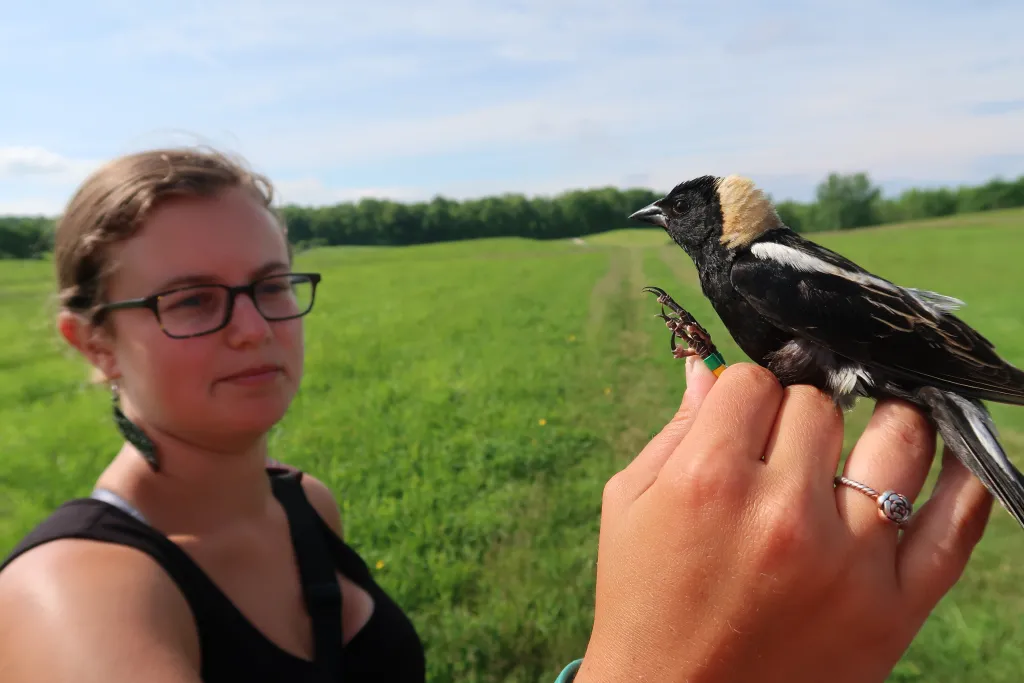UNE research helps Vermont farmers and grassland birds co-exist

With the full moon still hanging in the morning sky and the sun beginning to rise, Noah Perlut, Ph.D., associate professor and chair of the Department of Environmental Studies, and three of his students set out in search of bobolinks and their chicks on a picturesque farm nestled along Vermont’s Lake Champlain.
The purpose of the project is to help landowners better understand the birds on their property so that they may co-exist, balancing farming practices and production, with the needs of grassland birds.
“It has been amazing to work with these landowners,” Perlut said. “They've really listened to the science. They’re willing to look at this research and realize that if they change their habits a little bit, the birds and the farms can both thrive.”
For 18 years, Perlut has been studying the decline in these grassland birds in relation to farming activity. The research helps create a story of the birds, allowing owners of the land that they share to form a connection to them.
“For some of these birds, we have data on what their mother did, what their grandmother did and what their great-grandmother did in terms of where they bred, how many offspring they had, how many of the offspring survived and where they bred,” explained UNE graduate student Emma White. “So, we have this really amazing lineage of the families of these birds.”
Based on these stories, some landowners have made changes to their operations to prevent harming the birds.
“We've modified our cutting schedules to accommodate the birds” stated Sam Dixon, dairy manager at Shelburne Farms. “We mow very early in the season before the birds arrive, then wait 65 days before we do the second cutting.”
Each summer bobolinks take massive, nonstop trans-oceanic flights from their winter home in Argentina to nest in Vermont hayfields. The trips, up to 2300 miles, are some of the longest non-stop flights yet identified by songbirds.
“The journey that they make to Shelburne every year is really amazing,” Dixon said. “So, I feel some responsibility to provide them with a place that they can come back to.”
The research Perlut and his students are conducting has captured the attention of the greater Burlington area. Their project was recently featured in the Burlington Free Press. And a local brewery, Zero Gravity, has joined in their mission of protecting the birds.
The brewery developed a special beer, the Bobolink Saison, to raise awareness and money for the research.
“It's been amazing support, both financially and also in terms of bringing a new community into understanding and thinking about these birds, people that just don't think of birds every day,” Perlut commented.
A majority of the funding for the project comes from the U.S. Fish and Wildlife Service.
For the students spending their summer days in the hayfields of Vermont, the hands-on research is invaluable in helping them in their development as scientists.
“Part of the reason I came to UNE is the fact that it is research-heavy,” White said. “Coming out to these fields, finding the nests and spending time with the birds is definitely a huge draw for me.”
Perlut added, “I want the students to understand science and how science happens. The inquiry process, the process of collecting data, what to do with the data and how to get it out to the broader world.”
View the Burlington Free Press video
View the UNE bobolink research video
Read the article in The Kansas City Star, US News and World Report, The News and Observer, The Eagle Times, San Antonio Express News, Lexington Herald Leader, Miami Herald, and Associated Press





